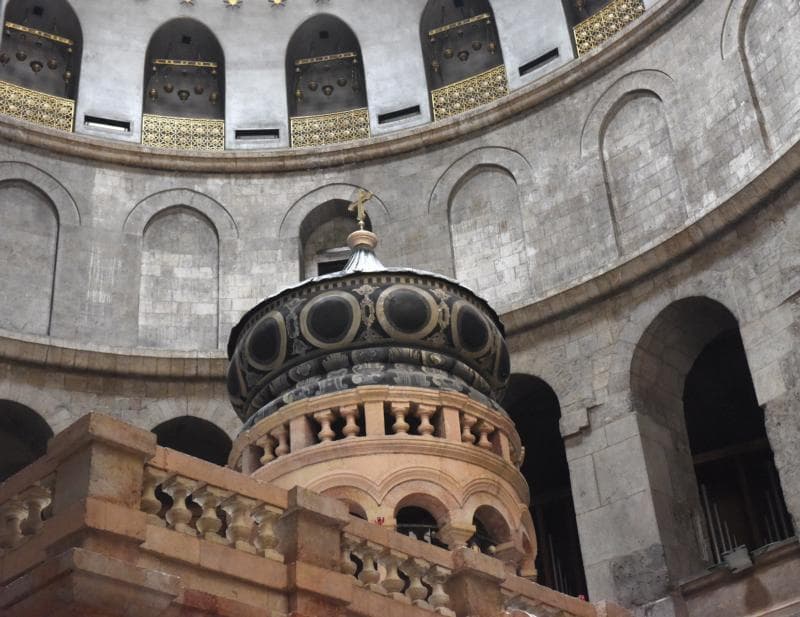WASHINGTON, D.C. – Next week, the National Geographic Museum in Washington, D.C., will open a 3D virtual tour of the Holy Sepulchre in Jerusalem, the site of Jesus’ tomb.
While the exhibit will likely draw tourists from around the country, could it also be used as a type of virtual pilgrimage, perhaps for those who are unable to visit the Holy Land in person, due to cost, disability, or other factors?
Yes, says Dr. Anthony Lilles, academic dean and theology professor at Saint John’s Seminary in Camarillo.
Lilles told CNA that the intention is key in making the experience a pilgrimage. “A tourists goes because they are curious, a pilgrim goes for a sacred purpose,” he explained.
“We must not, so to say, stay on the level of surface appearance, but instead allow our imaginations to be baptized by the places we are visiting virtually – thinking about the reality of Christ’s historical presence and what it means for our lives now.”
The three-dimensional tour opens on Nov. 15 in Washington D.C. and will continue until August 15, 2018.
It will give viewers an inside look at one of the most revered spots in Christian history.
Veneration of Christ’s burial place dates back to St. Helena in the fourth century, who discovered and identified the tomb. St. Helena’s son, Emperor Constantine, built the Church of the Holy Sepulchre in 326 and enshrined the tomb.
The shelf on which Christ’s body was laid is the central point of veneration, which has been encapsulated by a 3-by-5 foot marble structure – the Edicule – since at least 1555.
A year-long restoration of the site was recently completed, and scientists are looking into additional restoration work on the foundation.
The virtual exhibit takes visitors through the history of the holy site and shows the new technologies used in its restoration.
However, Lilles said the virtual tour offers not only a lesson in history, but an opportunity for a deeper devotion to Christ.
“As beautiful as a virtual exhibit may be, we can be too passive in our engagement with holy places precisely because we are only experiencing them virtually,” he cautioned.
Those who wish to attend the exhibit as a type of spiritual pilgrimage should take careful steps to prepare, he said.
He suggested reading the Gospel accounts of Christ’s passion and resurrection before visiting. Going to station from station in the 3D tour, a pilgrim might choose a prayer or scripture verse to meditate on at each stop.
Additionally, he said, the pilgrimage should be accompanied closely by Mass, confession, and a work of charity. It should culminate with firm resolutions on how to “live differently in light of the mystery of our faith.”
While the spiritual pilgrimage to the D.C. exhibit would not have an indulgence attached to it as other formally recognized pilgrimages do, Lilles said, virtual pilgrimages have been supported by the Vatican before.
“John Paul II once led pilgrims in the footsteps of Abraham from Ur to the Holy Land to Egypt and back to the Holy Land. He wanted to actually go to these places during the Great Jubilee of 2000, but Saddam Hussein refused permission,” he recalled.
“So instead, in the Paul VI audience hall, he led us on a ‘spiritual’ pilgrimage where slides of the sacred sites of Abraham were shown,” and the pope led prayerful meditations.
With the right mindset and adequate spiritual preparation, Lilles said, a virtual pilgrimage can yield spiritual fruits.
“One who goes as a pilgrim goes out of devotion to Christ who became a pilgrim for our sake, does penance for his own sins and the sins of our society, to ask for the mercy of God for forgiveness and healing, and to thank God for pouring out His loving kindness.”















